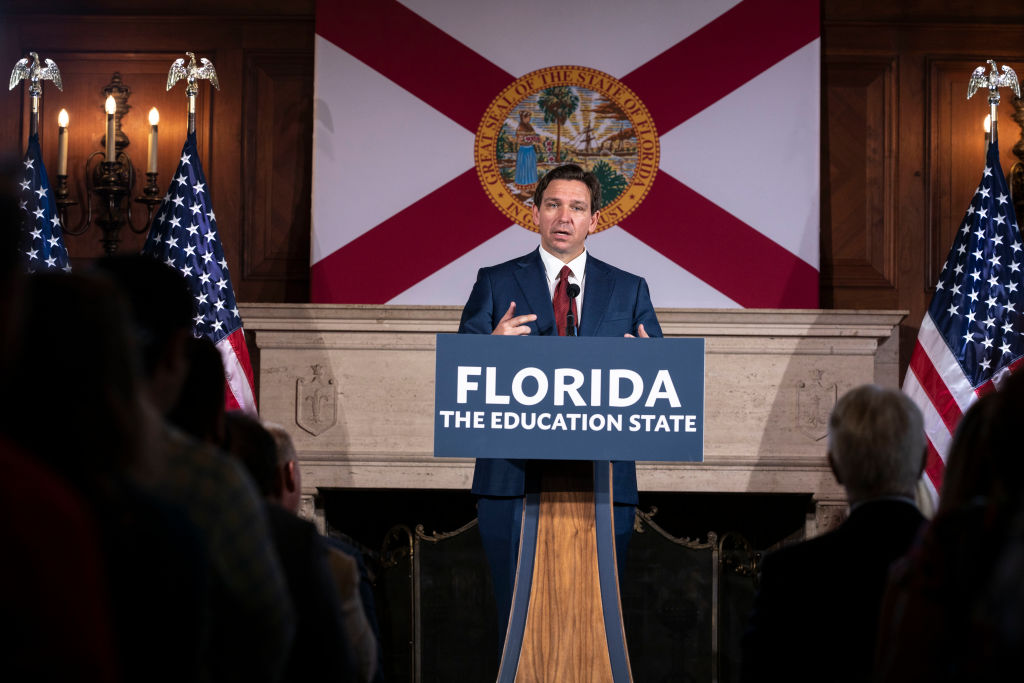The Sunshine State’s education reforms are a model for the nation.
Victory for Students

Texas voters punished Republican legislators who opposed school choice.
An earthquake has shaken Republican politics in Texas. Sixteen GOP state representatives who previously voted against school choice were on the ballot for the March 5 primary. Six won, six lost, and four now face runoffs. Given the advantages of incumbency, this outcome is staggering. The results are clear: Texas Republicans want school choice, and they’re happy to vote out politicians who don’t.
Some of the biggest opponents to school choice in the Texas House won’t return to the legislature in 2025. These include Steve Allison, Ernest Bailes, Travis Clardy, Glenn Rogers, Hugh Shine, and Reggie Smith. Also, Reps. DeWayne Burns, Justin Holland, John Kuempel, and Gary VanDeavers face highly competitive runoffs—and it’s entirely possible the incumbents lose each one.
School choice indeed was on the ballot. Corey DeAngelis, an education researcher and well-known “school choice evangelist,” calls the results a clear “mandate for school choice in Texas.” Unseating or forcing a runoff for 77 percent of sitting state representatives is astounding. Republicans who backed the government school monopoly—and they really ought to have known better—now face the likely end of their political careers.
DeAngelis was even more candid when I asked him personally for his takeaways: “This election was a total bloodbath…. The biggest political shift towards school choice in Texas history. School choice was the main dividing line in all of these races. It is already sending shockwaves all across the country and the message is clear: education freedom is a political winner and a GOP litmus-test issue.”
This is also a major victory for Governor Greg Abbott, who backed many of the primary challengers. The governor took a significant political risk, because incumbency rates in the state legislature are about 90 percent. Instead of floundering, Abbott demonstrated just how long his reach is. He now ranks among the most consequential governors in Texas history.
Last November, school choice was defeated in the Texas House 84-63 on a vote to remove transferable funding from an education bill. Twenty-one Republicans joined the anti-school choice coalition. Five of them chose not to seek reelection. Presumably their replacements will side with the governor in 2025. That, plus the six pickups mentioned above, combined with the runoff winners, will help Republicans get across the finish line. Any wavering representatives will likely stiffen their resolve, seeing how the political winds have changed.
Public opinion in Texas decisively favors funding students instead of systems. Sixty-seven percent of adults and 72 percent of parents with school-age children support school choice. In contrast, only 37 percent of Texans are satisfied with the direction of government-run K-12 education. Recalcitrant Republicans stood in the way of needed reforms, often while taking campaign donations from teachers unions and sending their own children to private schools. That roadblock is now gone thanks to the steadfastness of Texas primary voters.
There’s still much work to be done. School choice advocates shouldn’t take anything for granted in November’s general election. Assuming they win, they need to maintain the coalition and write a good bill. Nevertheless, this is an important victory. Winning these primaries is not sufficient to get school choice, but it is absolutely necessary. The prospects for school choice in Texas have never been stronger.
The American Mind presents a range of perspectives. Views are writers’ own and do not necessarily represent those of The Claremont Institute.
The American Mind is a publication of the Claremont Institute, a non-profit 501(c)(3) organization, dedicated to restoring the principles of the American Founding to their rightful, preeminent authority in our national life. Interested in supporting our work? Gifts to the Claremont Institute are tax-deductible.
Excerpted from Edward J. Erler's new book.
Notes from the convention that wasn’t.
Joe Biden accepts his party’s euthanization.
Woke aggression won’t stop with speech.
The dark money network shaping the Biden Administration and America’s schools.






